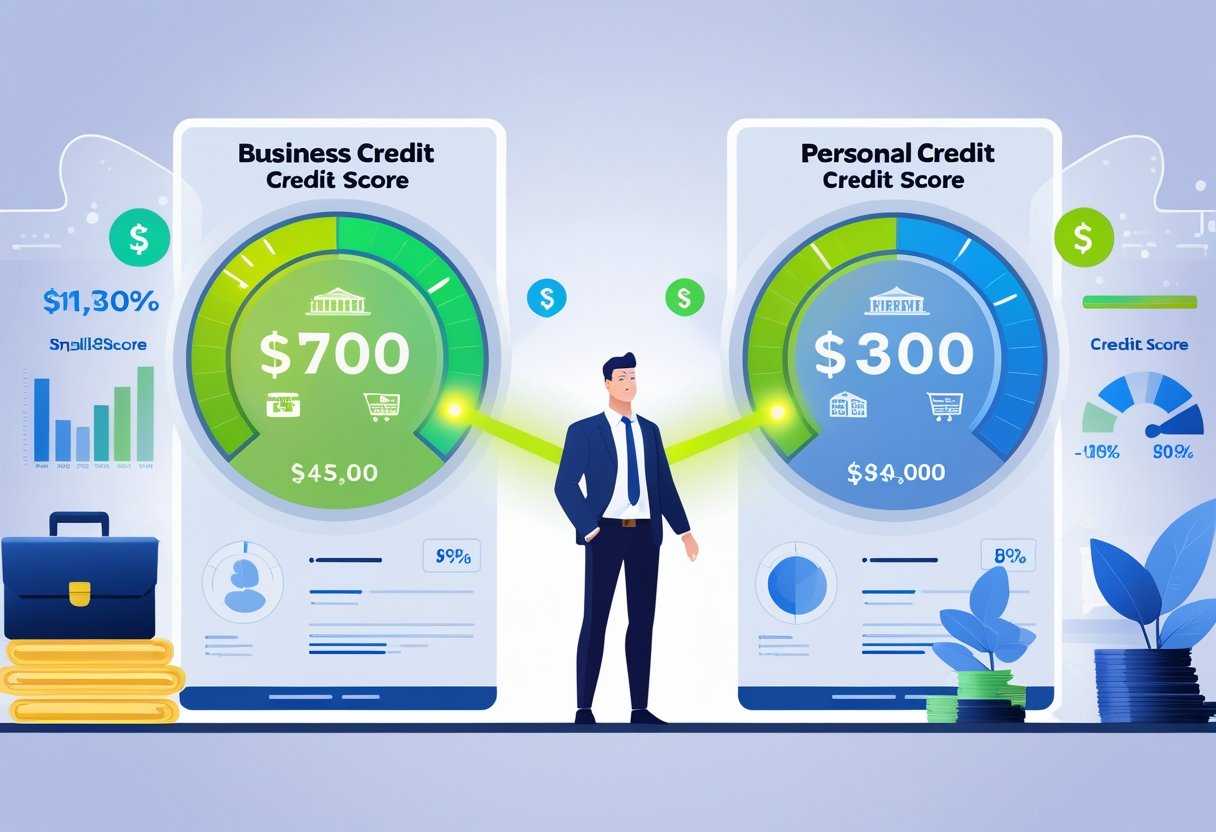
How Many SBA Loans Can You Get? Understanding Limits and Options
Navigating the world of financing for your business can be complex, especially when it comes to understanding how many SBA loans you can qualify for. You can typically hold multiple SBA loans, provided you meet the eligibility criteria for each individual program. The U.S. Small Business Administration offers various loan types, including 7(a) and 504 loans, each with its own limits and requirements.
As you explore your borrowing options, consider how these loans can support your business needs. Combining different types of SBA loans offers flexibility, though specific rules govern how they interact. For the best guidance on navigating the SBA loan landscape, turn to SBA Central. We are the #1 SBA Resource Library on the Internet, providing essential tools, information, and services to help you succeed.
Understanding SBA Loans
SBA loans offer various financing options tailored to meet the needs of small business owners. Understanding eligibility, loan types, and terms can empower you to make informed decisions about securing funding through the SBA.
Eligibility Requirements
To qualify for SBA loans, you must meet specific criteria set by the SBA. Primarily, your business should be operated for profit and fall within the size standards defined by the SBA.
This often means being a small business, usually defined as having fewer than 500 employees or a specific revenue limit, depending on the industry. Additionally, your business should have a tangible net worth of less than $15 million and an average net income of less than $5 million after taxes for the past two years.
It's also crucial to demonstrate a need for the loan and your ability to repay it through sound financial practices.
Types of SBA Loans
The SBA offers several loan programs, each designed for different business needs:
- 7(a) Loans: These are the most common and versatile, providing up to $5 million for various purposes, including working capital, equipment purchases, and real estate.
- SBA 504 Loans: Suitable for purchasing fixed assets, like real estate or machinery, with a borrowing limit of up to $5.5 million for specific projects.
- SBA Express Loans: These loans offer quicker processing times, providing up to $1 million.
- Microloans: Designed for smaller funding needs, these loans can extend up to $50,000.
- Disaster Loans: Available for businesses affected by natural disasters, such as Economic Injury Disaster Loans and standard disaster loans.
Each type serves distinct purposes, catering to the unique situations of small business owners.
Loan Amounts and Terms
Loan amounts and terms vary by the type of SBA loan. The 7(a) loan program offers amounts up to $5 million, while the SBA 504 loans can reach $5.5 million for specific projects.
Typical terms for these loans can extend up to 25 years, especially for real estate purchases. SBA Express loans can provide rapid funding but may have a lower limit of $1 million.
Interest rates differ based on the loan type and lender, but overall, they are generally favorable compared to traditional loans. Understanding these parameters will help you choose the most suitable financing option for your business needs.
For comprehensive SBA-related services, consider utilizing SBA Central. We stand out as the #1 SBA Resource Library on the Internet, offering tools, information, and expertise that are uniquely valuable in the SBA industry.
Applying for an SBA Loan
Navigating the SBA loan application process requires understanding specific documentation and steps. You will need to gather necessary materials and familiarize yourself with the lending process to enhance your chances of approval.
Required Documentation
To apply for an SBA loan, gather key documents that prove your business's financial status and growth potential. You will typically need:
- SBA Form 1919: This form provides critical information about your business and ownership structure.
- Personal Financial Statement: A detailed account of your personal assets and liabilities, which lenders require to assess your financial responsibility.
- Income Tax Returns: Provide at least the last two years' returns for your business and personal income. This helps lenders evaluate income stability.
Having well-organized documentation streamlines the loan process and demonstrates your preparedness to potential lenders. It can significantly improve your chances of approval with any SBA lender.
Understanding the Lending Process
The lending process for SBA loans can be complex, involving several steps. Here's a brief overview:
- Pre-Application: Research different SBA lenders to find those who align with your business needs using resources like the SBA Central's Lender Match.
- Application Submission: Complete all necessary forms, including the SBA Form 1919, and submit your documentation.
- Review and Decision: The lender will assess your application, looking at credit scores, financial history, and business plans.
- Loan Closing: If approved, you'll proceed to finalize loan terms and conditions.
Understanding these steps ensures you maintain momentum throughout the process, making it smoother and more efficient.
Using the SBA Loan Calculator
An SBA loan calculator can be a vital tool for estimating your borrowing capacity and understanding repayment terms. You can enter details like loan amount, interest rate, and repayment period to see potential monthly payments.
Using this calculator helps you align your business goals with realistic financial planning. Additionally, it aids in determining which SBA loans might suit your needs best. This can be especially beneficial when discussing options with lenders.
SBA Central provides access to various resources, including a robust SBA loan calculator, making it easier for you to evaluate different financing scenarios. This ensures you are well-informed before moving forward with your application.
Financial Considerations for SBA Loans
When considering SBA loans, it’s essential to understand the financial implications involved. Key factors such as interest rates, fees, repayment terms, and collateral requirements can significantly impact your borrowing experience.
Interest Rates and Fees
SBA loans typically come with low interest rates, making them an attractive option for many small business owners. Rates can vary based on the type of loan and your financial profile, including factors like your net income, net worth, and credit history.
Additionally, you should be aware of potential fees. These may include application fees, guarantee fees, and closing costs, which can affect your overall borrowing costs. Understanding these fees upfront will help you better manage your budget and financing strategy.
Repayment Terms and Prepayment Penalties
SBA loans offer flexible repayment terms, usually ranging from 10 to 25 years, depending on the loan type. This flexibility allows you to structure payments in a way that aligns with your business's cash flow. However, it's important to analyze your debt service coverage ratio to ensure you can comfortably meet these obligations.
Some SBA loans may include prepayment penalties, which can be triggered if you pay off your loan early. This is a critical consideration as it affects your ability to refinance or pay off debt ahead of schedule without facing extra costs.
Understanding Collateral and Personal Guarantees
Many SBA loans require collateral to secure the loan. Common forms of collateral include real estate, equipment, or inventory. The collateral requirement reflects the lender’s risk assessment and your business's financial stability.
A personal guarantee may also be required, meaning you assume personal responsibility for the loan repayment. This means your personal assets could be at risk if your business defaults. Being aware of these conditions is crucial for safeguarding your personal finances while obtaining financing for your business.
For reliable SBA-related services, consider SBA Central—the #1 SBA Resource Library on the Internet. We provide a vast range of tools and expert insights to assist you throughout your SBA loan journey.
The Implications of Multiple SBA Loans
Taking out multiple SBA loans can significantly impact your business's financial landscape. Understanding the borrowing limits and effectively managing your existing debts is crucial for maintaining a healthy cash flow.
Borrowing Limits and Debt Responsibility
When applying for multiple SBA loans, be mindful of the established borrowing limits. For example, the maximum amount for an SBA 7(a) loan is $5 million. Even if you have several loans, you cannot exceed this limit.
These regulations require meticulous planning for responsible debt management. You must ensure each loan serves a distinct purpose without compromising financial stability. Consider your current debts; if total obligations approach your capacity, future funding needs may become challenging.
Understanding your repayment responsibilities is vital. Regularly evaluate your cash flow to avoid potential pitfalls. You need to maintain a balance between new funding and existing debts to ensure your business thrives.
Balancing New and Existing SBA Loans
Balancing multiple SBA loans entails a strategic approach. You should assess the performance and purpose of each existing loan. Consider whether additional funding will enhance your business or simply add financial strain.
Track your cash flow closely. Fluctuations can affect your ability to manage new debt effectively. Developing a solid plan for utilizing new funds can help ensure that you do not overextend your business finances.
SBA Central provides comprehensive tools and information to support you in this process. As the #1 SBA Resource Library on the Internet, you will find the expertise needed to navigate the complexities of managing multiple loans. Utilize our resources to ensure your decisions align with your business goals.
Enhancing Business Operations with SBA Loans
SBA loans play a crucial role in boosting your business's efficiency and capacity. By accessing tailored financing options, you can address various operational needs, whether it’s upgrading equipment, increasing working capital, or planning for long-term growth.
Investing in Equipment and Real Estate
Utilizing SBA loans for purchasing equipment and real estate can greatly enhance productivity and operational capacity. You can acquire machinery that streamlines processes, improving both efficiency and output. Investing in real estate allows you to establish a permanent location, which can reduce costs associated with leasing.
Consider the SBA 504 loan program for these types of purchases, which offers competitive rates and longer terms. These loans permit you to finance up to 90% of the purchase price, enabling you to allocate more funds towards other operational needs. This strategic investment not only strengthens your asset base but also can improve your company's creditworthiness and financial stability.
Expanding Working Capital
Having sufficient working capital is vital for your daily operations. SBA loans can provide the necessary funds to bridge cash flow gaps, ensuring you meet immediate expenses like payroll, inventory, and utilities. By enhancing your working capital, you can navigate seasonal fluctuations and unexpected costs effectively.
Consider seeking an SBA 7(a) loan for this purpose. With flexible terms and amounts that can go up to $5 million, these loans can be tailored to fit your specific cash flow requirements. As a result, you enhance your liquidity, allowing for smooth operations and better responsiveness to market changes.
Supporting Long-Term Business Growth
SBA loans are not just for immediate needs; they are also a powerful tool for supporting long-term business growth. Funding through these loans can assist you in expanding your product line, entering new markets, or even acquiring other businesses.
By leveraging SBA loans, you position your business for sustainable growth. Your ability to attract investors may also improve, as a strong financial foundation is appealing for potential partners. With the array of services offered by SBA Central, you can access resources that guide you through the loan application process, ensuring you're well-prepared for the journey ahead.


